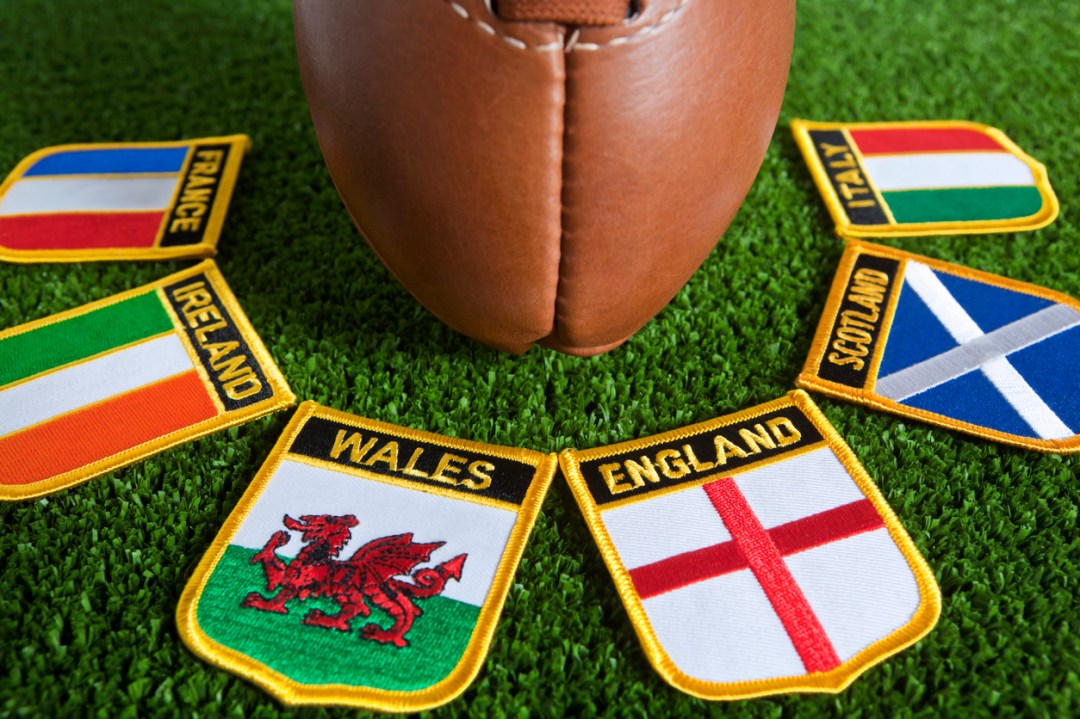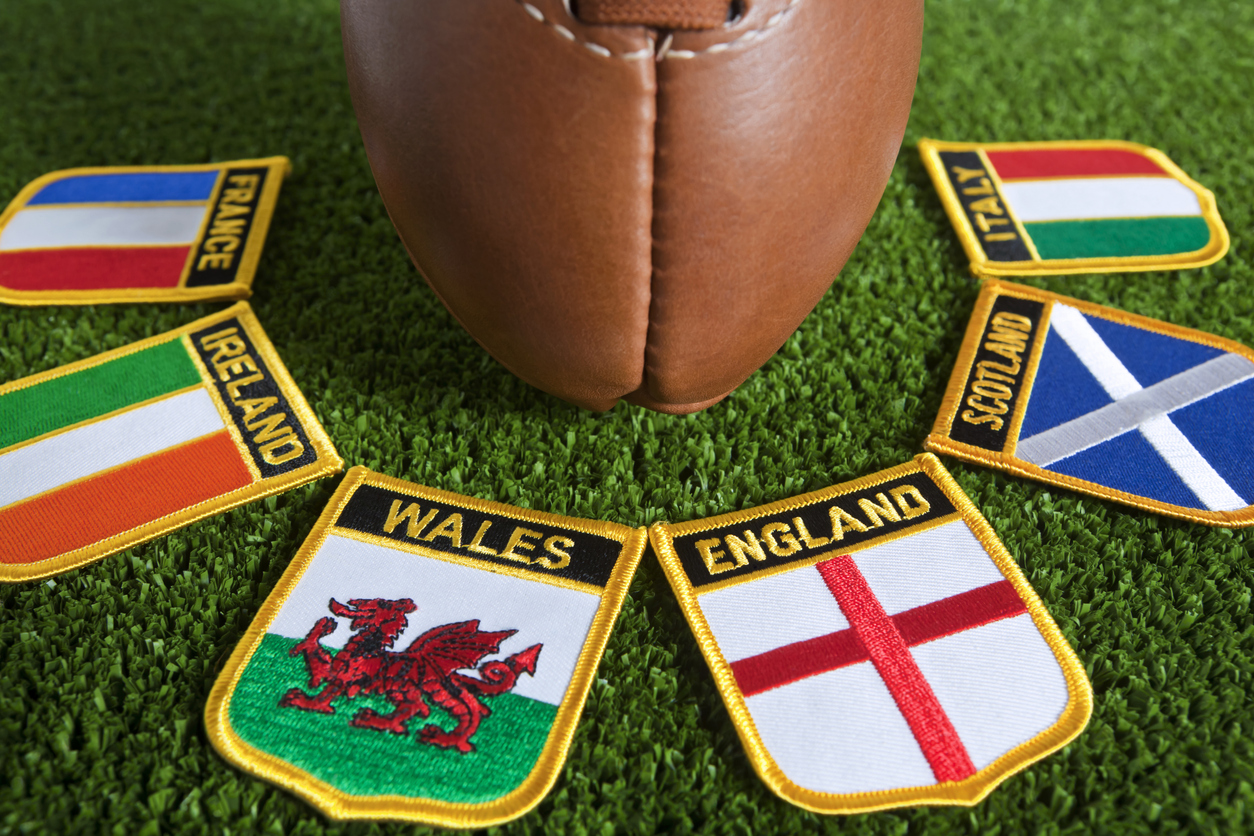The first months of the year are a tough time to inhabit this corner of the planet. First there’s January to contend with – darker than Himmler’s sock drawer and full to the rafters with post-festive self-flagellation. Then we’re into February, which is just more of the same: January by another name. No wonder the powers-that-be decided to shave a few days off it.
Fortunately, salvation has arrived – as it does every year, just when we were nearing breaking point amid the relentlessness of winter. I write, of course, of the Six Nations, a great sporting festival devoted to genial national rivalry and daytime binge-drinking in equal double measures.
After all that gloom it’s a legitimate excuse to head back to one of your favourite places and while away hours watching sport in the company of friends. As such, given the opacity and ever-changing nature of rugby’s arcane rules, the Six Nations is not so much a sporting pageant as an annual celebration of British pub culture, a six-week beer festival masquerading as a sporting tournament.
And what a joy it is. Step into a pub with the Six Nations on and you find yourself on a different, happier planet. Because in that moment nothing else matters. It’s just you, the screen, the blokes on the pitch, the chat, the Guinness. It’s a Donald Trump and Rachel Reeves-free zone. And it’s glorious.
One minute, the concentrated silence can be deafening – except for the hissing noise from the stadium and the commentator’s voice. The next there’ll be a whistle, and you’ll notice a benign, contented hubbub fill the room; men chatting happily about nothing, a noise I fancy you would have on the sidelines of such contests for centuries. It’s so good they bottle it and play it on Spotify.
Rugby in its broadest form is a seriously ancient undertaking. Primeval, you might even say. Yes, rugby union proper is only 200 years old – ‘invented’ in 1823 when William Ellis famously (though many doubt he ever did) picked up a football and ran with it on the playing field at Rugby School.
But long before him, groups of blokes have been running back and forth with balls or bladders – sometimes sticks too – for thousands of years. The ancient Greeks had harpustum, a game which took its name from the word meaning ‘carried away’ and involved a smallish rugby-sized ball filled with feathers. The Romans caught the bug from them. Several years ago I witnessed a bizarre match of rugby-style football in Florence in a huge sandy enclosure on the Piazza Santa Croco. It was American football meets British bulldog in pantaloons, and not for the faint-hearted. The quarters of that city have been at it for centuries, apparently.
And this is something of what the Six Nations taps into. It’s ancient stuff and speaks to who we are. Were you to dress the six teams in identical clothing, you would still be able to guess their nationality in a blink of an eye. You would, wouldn’t you? Not least since half of them actually resemble Asterix caricatures of our national stereotypes. It’s not the Six Nations in association with Diageo’s famous stout brand so much as a sporting tournament brought to you by Albert Uderzo.
And there’s sound reason for this. The participant peoples of the Six Nations have been living cheek by jowl and killing each other for a very long time. What’s more, whatever the Royal Navy thinks, we Englishman can generally spot a Frenchman at a couple of hundred yards – comfortably within the effective range of a longbow. Ditto a Welshman, or a Scot or Irishman. As for the Italians, hah! Come on…
Not even an emperor in his box at the Colosseum had it better than your average chap watching the Six Nations in the local pub with pint of bitter and a packet of dry roasted peanuts
It cuts both ways because while we’ve all been at each others’ throats for more than a thousand years, so these historic rivalries have helped define us. One of the reasons we are who we are is because we’re not them. And so it is for the Scots, the Welsh, the Irish and the Italians. And yet for all of that cultural bedrock of medieval violence and enmity – none of it is even faintly present in this pageant of athleticism. It’s only as real as the foam horns on the helmet of chaps dressed as St George.
Similarly, watch the match at the local and you’ll find none of the swearing or aggressive outbursts that you’d get for football, even though there’s a hundred blokes in there, each with several pints down them by half time. A couple of dads will likely have brought their children along – they’ll be skipping about the place, too, sipping full-fat Coca-Cola with relish because their mums aren’t there and being placated with kilos of crisps. But no one minds. And that’s a bit like the score – because while we all like to win, it’s really all about the taking part, and the sheer unbridled joy of watching one of your players break through the line of opponents and run 20 or 30 yards to score a try.
Which is why, to my mind, the Six Nations offers the last word spectator or non-participation sport (watched as it is by more people than play the game). Not even a Roman emperor, seated in his Imperial box over the blood-stained enclosure of the Colosseum, had it better than your average chap watching the Six Nations on a Saturday afternoon in the local pub with pint of bitter and a packet of dry roasted peanuts. What’s for certain is that from the end of January through to the first burgeoning days of spring in mid-March, by which time you might get to see a bluebell or two, the Six Nations makes it good to be alive.
Could it be improved? Well, we let the French in in 1910, and it’s not gone too badly. The Italians joined the party 25 years ago and are very good at letting people win points. So could it be time to make six into a seven? The Germans have had a rugby union team in since the 1920s and aren’t bad. Not only would this lengthen the festival of sporting light by another week or so, it would also be an opportunity for the Italians to share the wooden spoon with someone else. What’s more, England might get to win at penalties for a change…








Comments